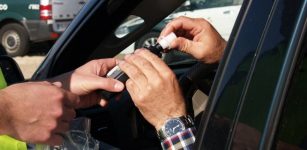Beating a Drink Driving Case, Naturally

A New York woman who was charged with drink driving has had the charges dropped after being diagnosed with a rare medical condition which causes her body to produce alcohol.
The woman, who cannot be named, was pulled over after allegedly being observed driving erratically in October 2014. A breath test returned a reading of 0.33 – more than four times the New York legal limit of 0.08.
The woman’s defence lawyers were perplexed by her insistence that she had not consumed more than three drinks in the six hours prior to driving. They decided to dig a little deeper, and, after contacting medical experts, discovered that she suffered from ‘auto-brewery syndrome’ – also known as ‘gut fermentation syndrome’ – which means that her digestive system produces substantial quantities of ethanol.
The rare condition can result in a constant states of drunkenness – as well as dizziness, fatigue, dry mouth, disorientation and even hangovers. But in this case, the woman claimed that she did not feel intoxicated at all.
She purchased a home breath testing kit and recorded an average reading of 0.20 each day over the course of 18 days – despite not consuming any alcohol. A number of medical professionals also monitored her blood alcohol levels.
She was eventually placed on a low carbohydrate diet which fixed the problem – and the charges against her were dropped.
High Range Drink Driving in NSW
Driving with a reading 0.33 – which is more than double the ‘high range prescribed concentration of alcohol’ in NSW – can attract heavy penalties; including an ‘automatic’ disqualification from driving of 3 years (which can be reduced to a ‘minimum’ of 12 months), a fine of up to $3,300 and a prison sentence of up to 18 months, for a first offence.
Drivers will also normally be required to obtain a mandatory interlock licence after serving a period of disqualification.
Other Weird and Wacky Medical Defences
The case of the New York drink driver is just one of many where a medical condition has led to charges being dropped.
These cases generally fall under the defence of ‘automatism’ – which means that the accused person’s actions were involuntary, or out of their control.
Sleep Disorders
In one Australian case, a man was found not guilty of sexual assault after being diagnosed with ‘sleep sex disorder,’ also known as sexomnia; a condition which leaves the sufferer susceptible to engaging in sexual activities while asleep.
48-year-old Leonard Andrew Spencer was charged with sexual assault and performing a gross act of indecency after he crawled into bed with a 21-year-old woman who was residing at his home in north eastern Arnhem Land.
A sleep doctor testified that Mr Spencer may have been suffering from the rare condition, which could have been triggered by marriage break up, sleep deprivation and prescription medication. The testimony was supported by Mr Spencer’s ex-wife, who told the court that she had witnessed him sleepwalking in the months leading up to the incident.
In another recent case, an American man was acquitted of murder and attempted murder after attacking his children in his sleep. 50-year-old Joseph Anthony Mitchell strangled his four year old son to death before attacking his two older children, both aged 13. An expert witness diagnosed Mr Mitchell with ‘non-rapid eye movement parasomnia,’ which can lead to involuntarily acts while asleep. The court heard that financial pressures and sleep deprivation may have exacerbated the condition.
Sleep disorders, such as sleep apnoea, are also commonly relied upon in traffic cases such as dangerous driving occasioning death where the defendant falls asleep at the wheel.
Diabetes
Diabetes is an extremely common medical condition, affecting up to 9% of people worldwide. If not treated properly, it can lead to severe behavioural changes, confusion and seizures – and even assault charges for striking those nearby.
However, it is possible in some cases to use the condition as a defence to criminal conduct – which is precisely what occurred in the English case of R v Quick [1973]. Mr Quick was a mental health nurse who was charged with assaulting one of his patients after mistakenly taking an overdose of insulin. The Court of Appeal found that the defence of automatism could be raised to show that Mr Quick was not acting of his own accord. He was found not guilty on that basis.
As these cases illustrate, medical conditions can lead to criminal charges being brought against people through no fault of their own.
Going to court for a traffic offence?
If you are going to court for a traffic offence, call or email Sydney Criminal Lawyers anytime to arrange a free first consultation with an experienced, specialist traffic lawyer who will accurately advise you of your options, the best way forward, and fight for the optimal outcome in your specific situation.






